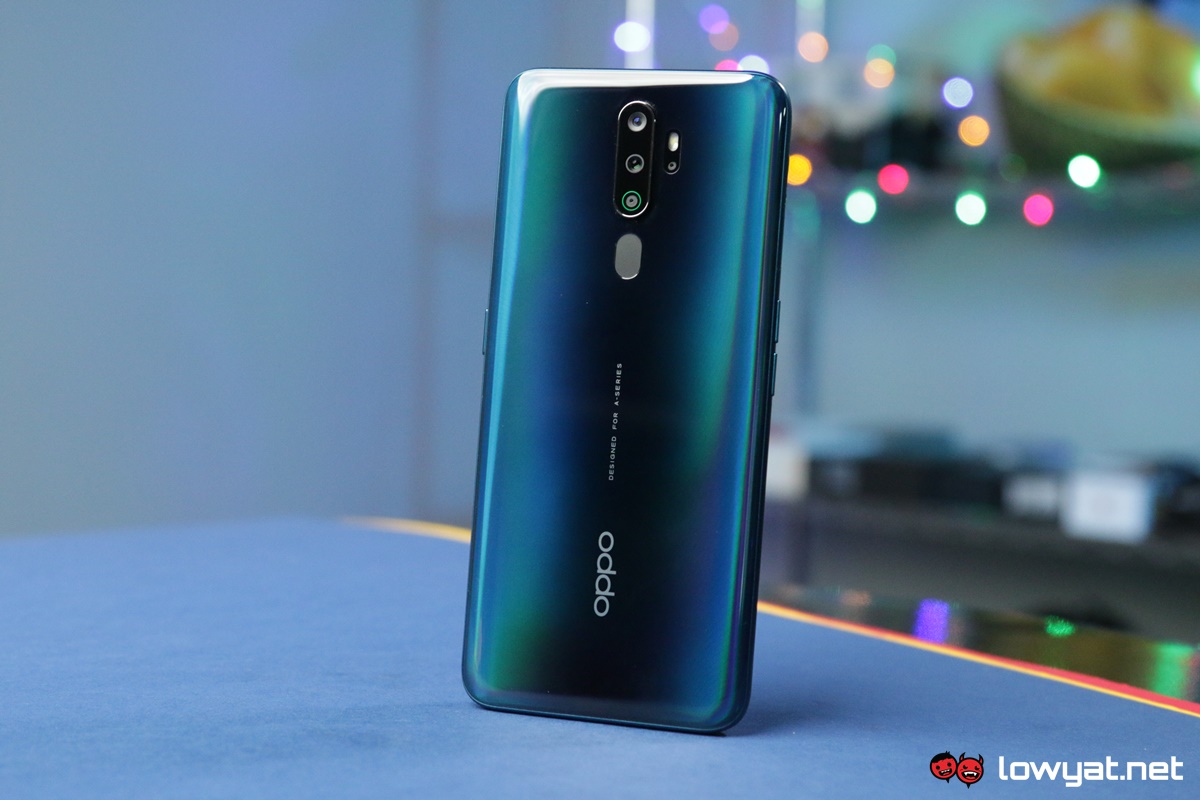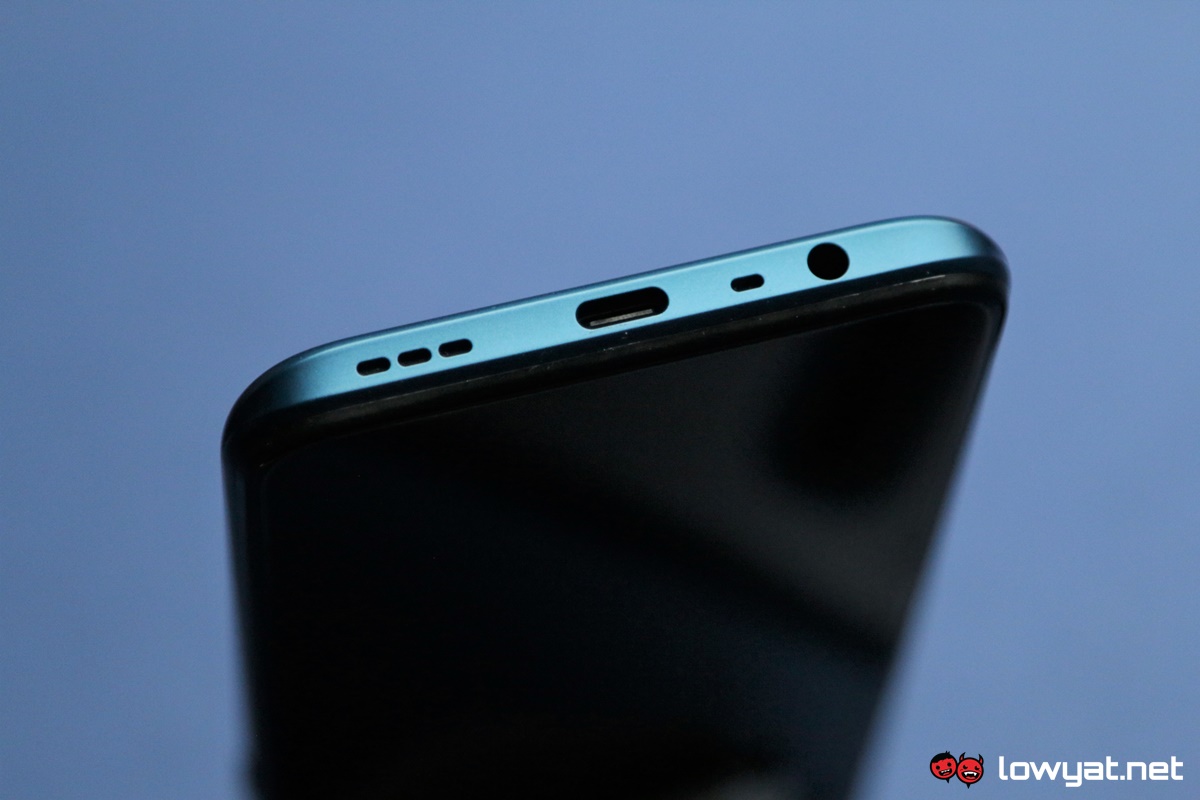When it comes to purchasing a mid-range smartphone, the price-to-performance factor is always a crucial factor in a consumer’s decision-making process. Unlike a high-end smartphone, it’s a balacing act that consumers must face. Choosing between a better camera, longer battery life, or power and responsiveness.
Amidst the sea of mid-range smartphones, the OPPO recently threw the A9 2020 into the mix. And from the looks of it, long battery life and an affordable pricetag are what this phone has to offer.
Specifications
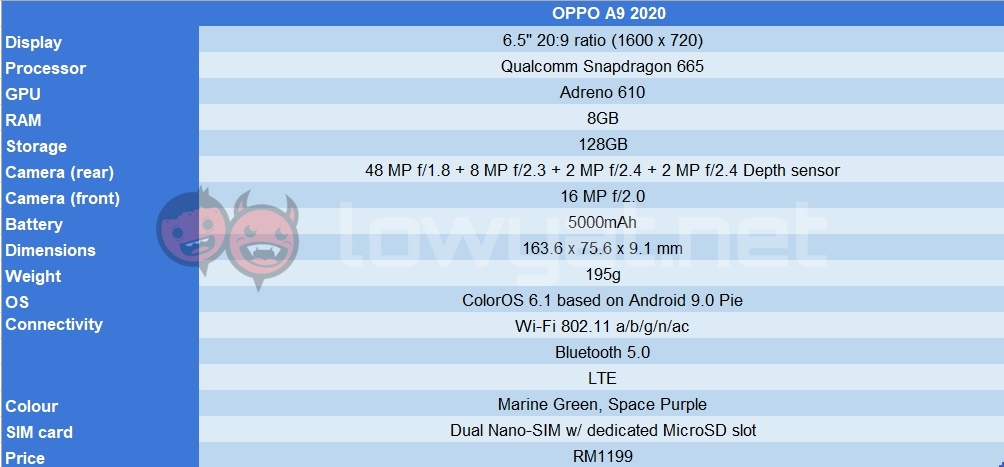
As far as hardware goes, the OPPO A9 2020 is pretty well-balanced. It’s equipped with a Qualcomm Snapdragon 665 SoC, has 8GB RAM and 128GB of expandable storage. Additionally, the phone comes with a massive 5,000mAh battery, which is one the chief highlights of this phone. But more on that later.
Design

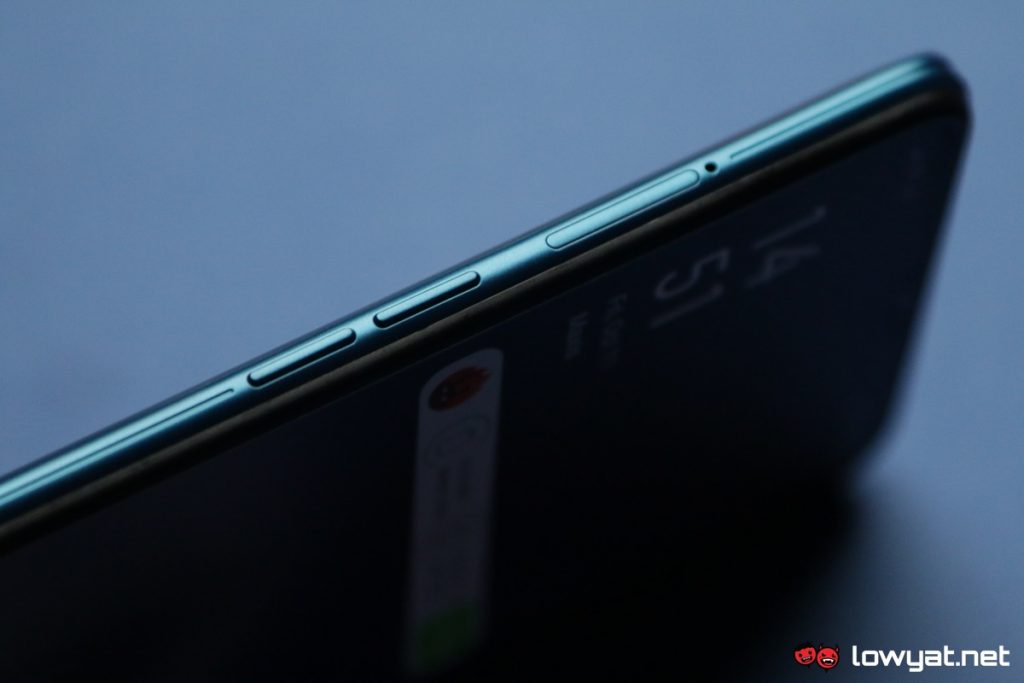
Design-wise, I find the A9 2020 pretty easy to grip, thanks to its curved back. Not to mention the physical button placement for the lock button as well as the volume rocker on the side is properly placed in the middle for an easier reach given that the long design of the phone itself. A fingerprint scanner can be found around the back as well.
Naturally, the A9 2020 is available in a limited variety of shades and hues. The unit in my hand sports a blue-violet gradient and shifts between each other when light hits the back at just the right angle.
The main camera module sticks out like a sore thumb.
Oddly enough, the main camera module of the A9 2020 prominently sticks out from the back of the phone. While it’s not a bad thing, per se, the design choice does leave the camera vulnerably to scratches. Thankfully, the phone comes with a silicone case which blends in with the camera bump.
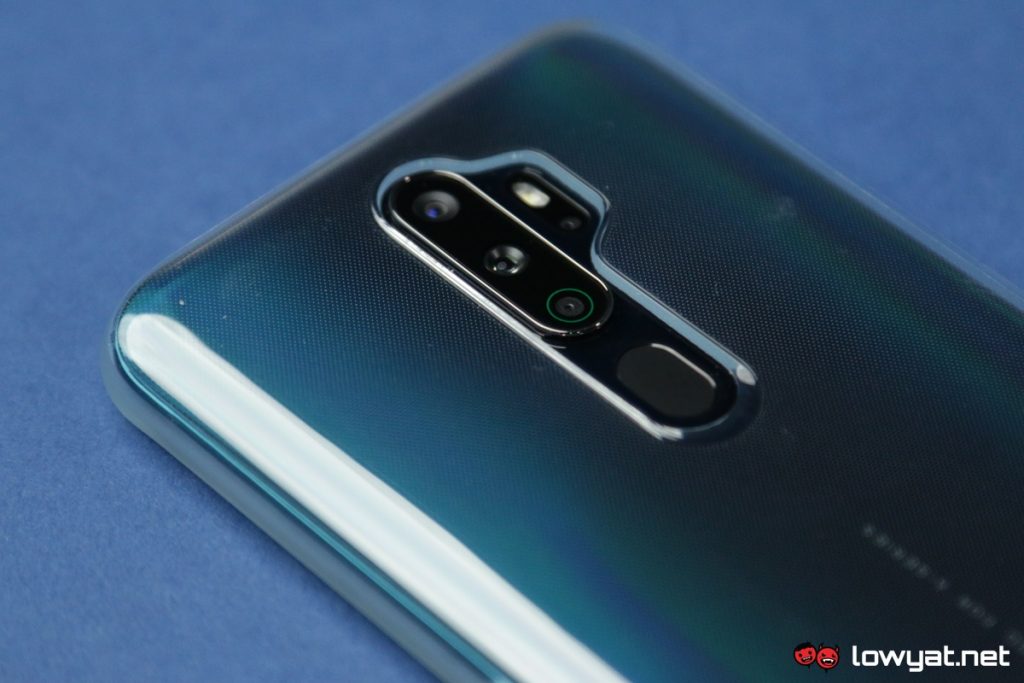
The SIM card tray is located right above the volume rocker, which in turn is situated on the left side of the phone. Leaving the top of the phone nice and clean. On the bottom, you can find the loudspeaker, a USB-C port, and a 3.5mm headphone jack.
User Experience
As with all OPPO devices, the A9 2020 runs on the brand’s ColorOS 6.0.1 UI, which in turn runs on top of Android 9.0 Pie. It’s pretty lightweight too, with interactions feeling very responsive, and apps opening up with a minimal amount of lag. One caveat I take issue with, however, is the random advertisement pop-up in my notifications whenever I access the OPPO App Market.
Unsurprisingly, the Snapdragon 665 powering the house A9 2020 is quite impressive when it comes to gaming. Granted, I don’t expect it to run at the highest graphics settings, but it is still capable of running titles such as Mobile Legends at 60 fps.
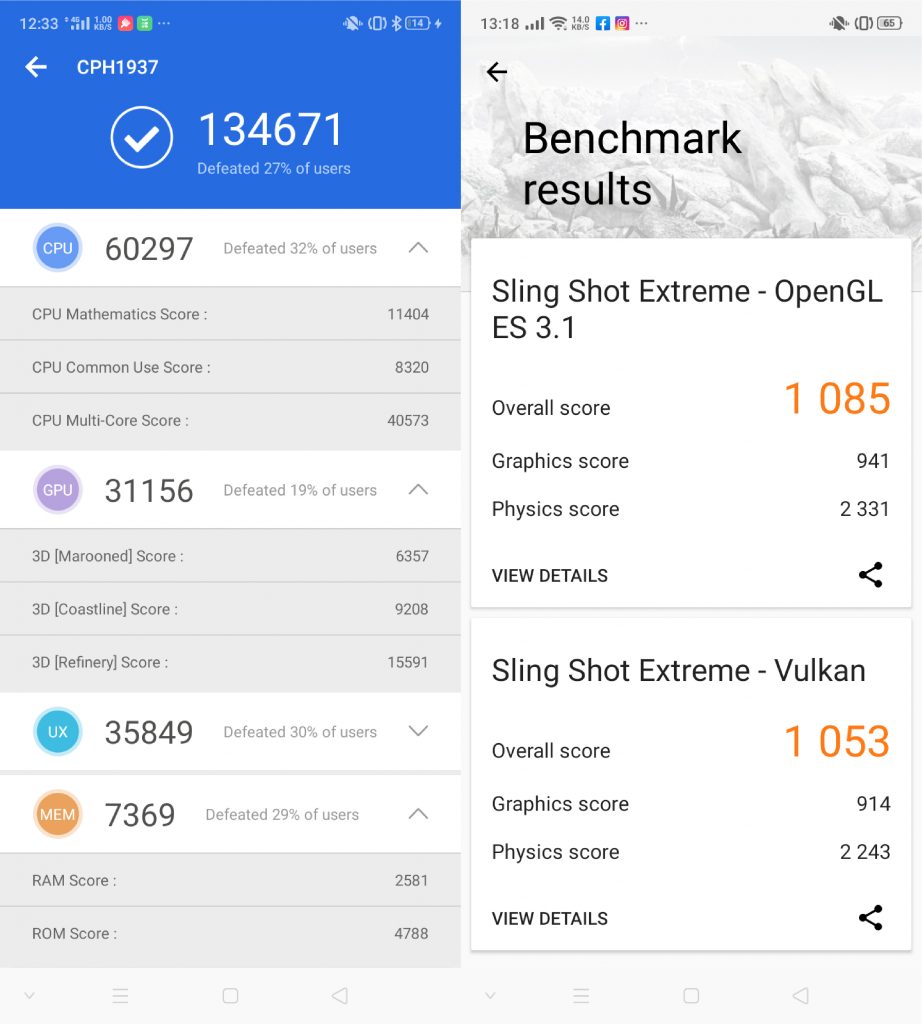
Of course, one of the most prominent features of the A9 2020 is without a doubt the massive 5000mAh battery nestled within it. Performance-wise, the phone gave me nine hours and 51 minutes, running YouTube continuously. Mind you, that’s with the phone connected to a Wi-Fi source, and not with mobile data.
The legs on the phone’s battery.
As my daily driver, the A9 2020 gave me nearly two days of battery life, going from a full charge to just 5% of battery left. This included the occasional web browsing, checking my emails and messages, as well as the random video online.
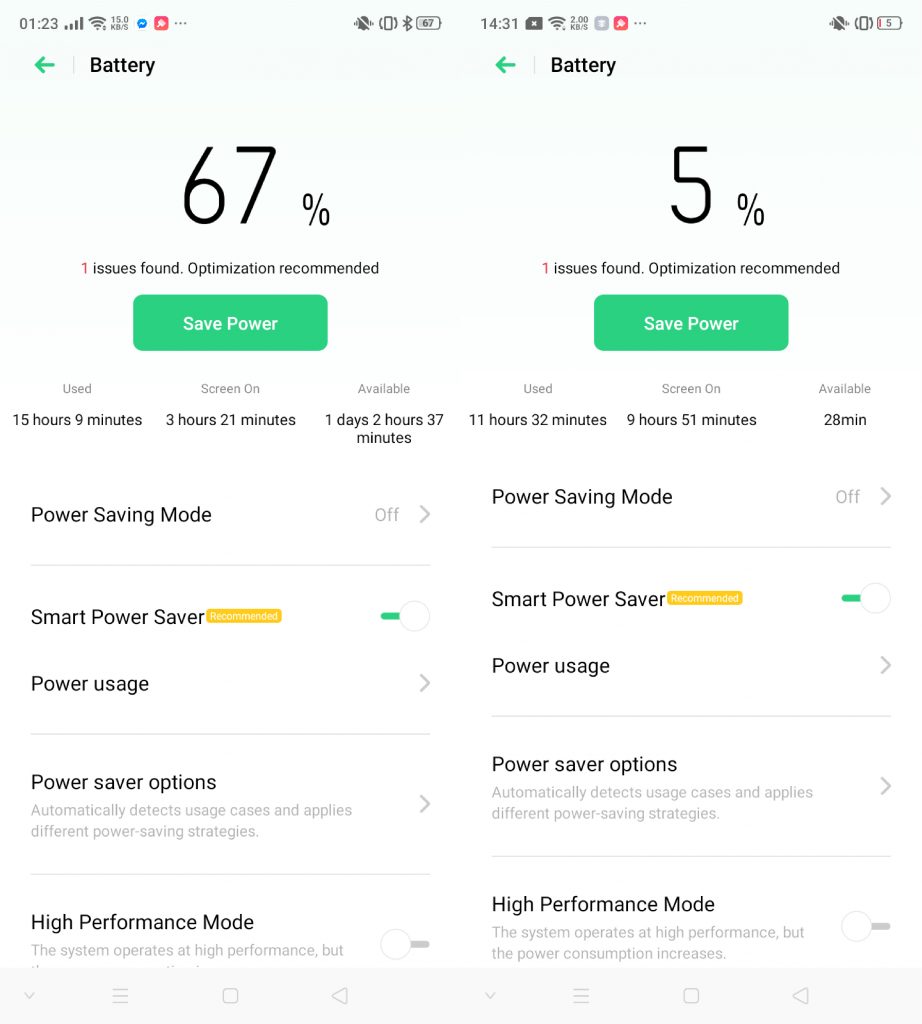
In regards to charging the phone, A9 2020 only comes with a 10W charger, meaning that a 30-minute charge only gives me 15% of battery that frankly, isn’t as impressive as other phone chargers on the market. To fully charge the phone, it takes approximately three hours and 20 minutes. I do find it a little odd that OPPO did not include its VOOC technology and charger with this phone. Then again, it’s likely that that feature is only reserved for higher-end OPPO devices.
On another note, I find that the A9 2020’s facial recognition feature is faster than the onboard fingerprint scanner. I like how the phone, coupled with its Raise to Wake feature – unlocks the phone before I can even place my finger on the scanner. Having said that, I will say that this isn’t the safest way of keeping your phone secure, and does compromise security for the better accessibility. So, if you’re not a fan of using your face to unlock your phone, at least you can revert back to the fingerprint scanner and traditional password input.
Camera
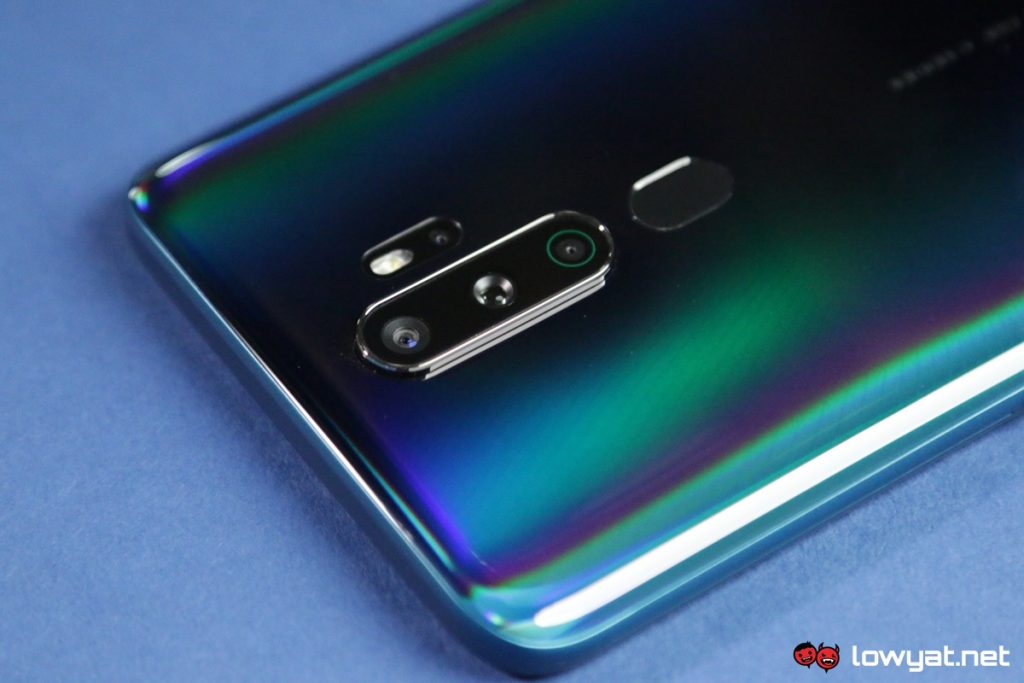
The A9 2020’s main camera array comprises four cameras: a 48MP main sensor, along with 8MP and 2MP cameras. There’s also a 2MP depth sensor that is situated on right of the module, separate from the array.
Obviously, the 48MP sensor does most of the work; it definitely captures a lot of detail, but there are hit or miss moments with the main camera. With some images looking overly processed by the phone’s onboard AI processor.
On the other hand, night photography with the A9 2020 is surprisingly decent, with pictures capture coming out with a minimum amount of noise, as well as retaining a high level of clarity without the need of any processing.
Sample Images










Competition
As a mid-range smartphone priced at RM1199, there are plenty of mid-range smartphones that can definitely rival the A9 2020, and with similar or better hardware, to boot. Below are two contenders that I believe gives the phone a run for its money.
Realme 5 Pro
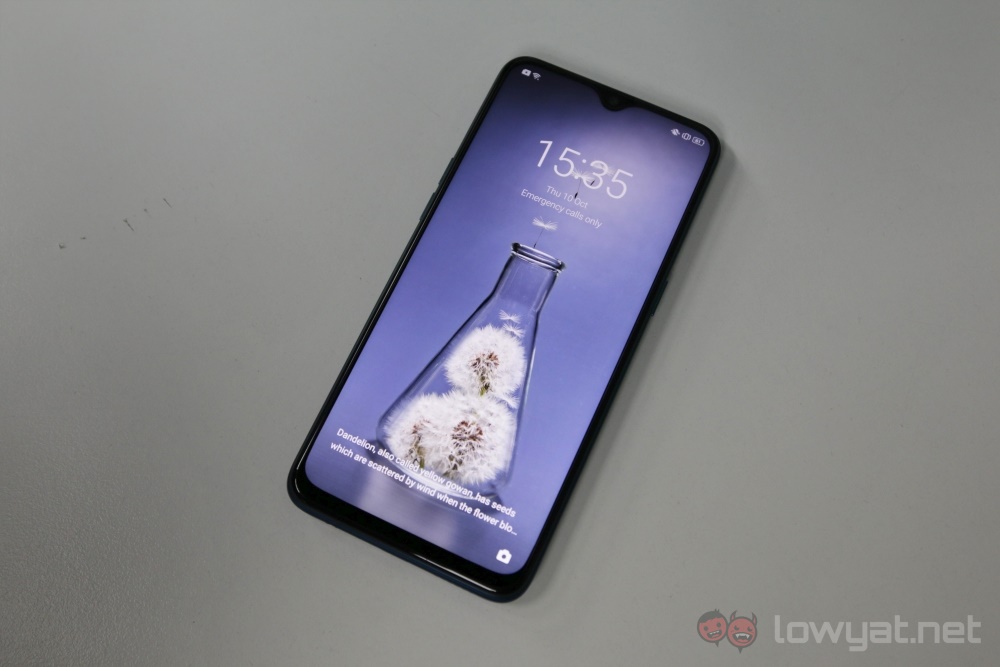
The Realme 5 Pro is a pretty strong contender to the OPPO A9 2020. At RM1099, it features a slightly more powerful Snapdragon 712 SoC. For the cameras and sports a similar quad-camera with a 48MP sensor. The main difference is that it comes equipped with a macro camera instead of the depth sensor.
Other than that, the Realme 5 Pro is fitted with a smaller 4035mAh battery but it comes with the 20W VOOC charging. Beyond that, its specifications are almost identical, right down to the same 8GB/128GB memory configuration option.
Xiaomi Mi 9T
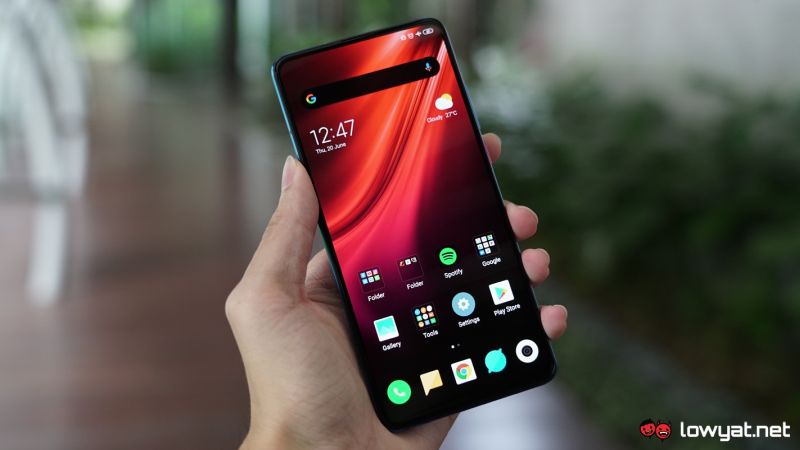
At the same price, there’s also Xiaomi’s Mi 9T to be considered, and with good reason. The phone, while lacking slightly in the memory department, packs a punchier Snapdragon 730 SoC. On top of that, it has a FullView, notchless display and a motorised pop-up selfie camera.
Further, the Mi 9T comes bundled with an 18W fast charger, albeit with a smaller 4,000mAh battery.
Conclusion
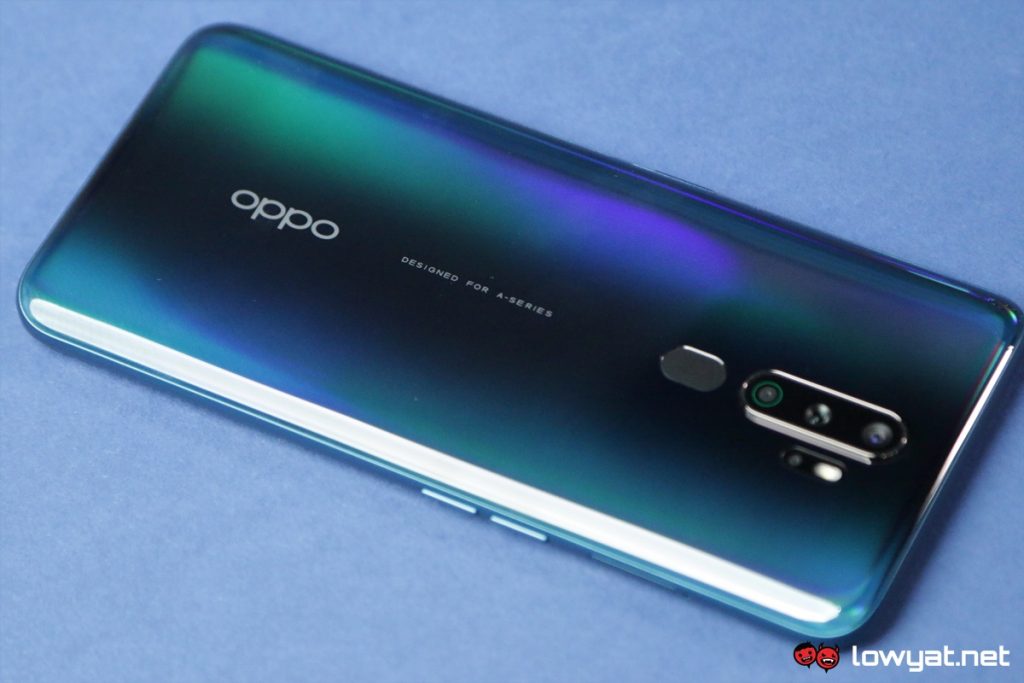
Once again, if you’re in the market for an affordable smartphone within the sub-RM1000 range, the OPPO A9 2020 is definitely one a phone to be considered. The legs of its 5000mAh battery give me the solace and assurance that I don’t have to frantically search for a charging point, nor the fear of my phone suddenly running out of battery by the end of the day.
And while I feel that it could do with some improvements, its quad-camera module is still pretty decent for its price point too. If you are a user who prefers to binge-watch YouTube or Netflix shows while on the move, this could be the phone for you.
Photography by Bryan Lim.
Follow us on Instagram, Facebook, Twitter or Telegram for more updates and breaking news.


